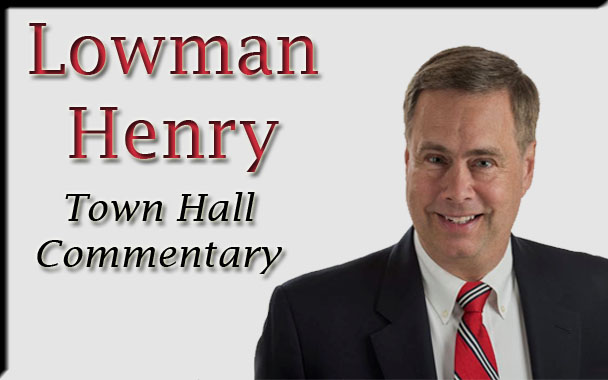Avoiding the Budget Surplus Trap

Lawmakers in Harrisburg are finding themselves in an unusual situation: there is a surplus of funds as the commonwealth prepares for the 2022-2023 fiscal year. Budget surpluses are rare – and more dangerous – than budget deficits because they generally lead to spending that cannot be maintained over the following years without raising taxes.
Pennsylvania has fallen into that trap before. In an effort to spur recovery from the Great Recession the Obama Administration successfully lobbied congress to pass the American Recovery and Reinvestment Act. Trillions of dollars flowed into state coffers and then Governor Ed Rendell directed additional billions into public education.
But, as planned, the funding stopped. By then Republican Governor Tom Corbett had succeeded Rendell in office. He raised the state’s share of spending on public education, but the stimulus dollars were gone creating fertile ground for the Left to claim Corbett had cut education spending. The big lie stuck and contributed to Corbett’s loss in the next election.
This time around Republicans are wise to the trick. The state is once again flush with stimulus cash shoveled into state coffers by the federal government on the mistaken assumption that tax revenue would plummet in the wake of the COVID-19 pandemic. For many states, including Pennsylvania, tax revenue has actually increased creating the current funding surplus.
The Left is behaving like kids in a candy store proposing all manner of ways in which to spend that money including once again a massive increase in funding for government schools. Republicans, however, understanding the fiscal bulge is transitory are urging restraint and caution.
Governor Tom Wolf in his budget address not only took credit for the surplus he did not create, but predictably called for spending an additional $1.9 billion on pre-K through college education. This in addition to the billions already pumped into the public education dark hole from the many COVID-19 related stimulus programs created by congress.
All of this raises the question: does more money equate to better educational performance. The Left views even asking the question as heretical, but despite the billions poured into public education in recent years there is no discernable improvement in student outcomes. Democratic leaders were quick to quash a recent state agency report that in fact found there is no correlation between higher spending and student achievement.
In addition to creating state budget surpluses the COVID-19 pandemic also created a surplus of students seeking state aid to attend non-government schools. In addition to being whip-sawed by public school closures, mask mandates and other pandemic-related problems parents found themselves at home helping students with course material and in many cases did not like what they saw. That has led to a new wave of parental activism, and also spiked demand for education alternatives.
The Commonwealth Foundation reports that programs like the Educational Improvement Tax Credit (EITC) and the Opportunity Scholarship Tax Credit (OSTC) which give businesses and individuals tax credits for donating to scholarship organizations topped out before fulfilling scholarship need.
“Limits on the program in state law have resulted in more applications denied than scholarships awarded in some years,” the Commonwealth Foundation reported with applications for both the tax credits and scholarships exceeding the funding available. The report continued: “EITC and OSTC programs awarded 61,767 scholarships in 2019, while 75,651 applications were denied because of enrollment caps.” And that was before the pandemic induced spike in demand,
To correct the problem State Senator Mike Regan (R-York & Cumberland) has proposed adding a budget escalator that would increase state funding caps for EITC and OSTC by 25% every year when at least 90% of the available tax credits are claimed the previous year. That would eventually allow for enough tax credits to fund scholarship demand.
That measured approach to creating more educational opportunities for students and parents is a sustainable, fiscally prudent policy that breaks the cycle of pumping more and more money into a government school system that produces no discernable improvement in performance as a result of the additional dollars spent.
Tom Wolf has just a few months left in office. This time the legislature must side-step the funding trap Ed Rendell set for his successor and instead use the surplus on short-term proven programs – and save some for the next rainy day.
(Lowman S. Henry is Chairman & CEO of the Lincoln Institute and host of the weekly American Radio Journal and Lincoln Radio Journal. His e-mail address is [email protected].)
Permission to reprint is granted provided author and affiliation are cited.






